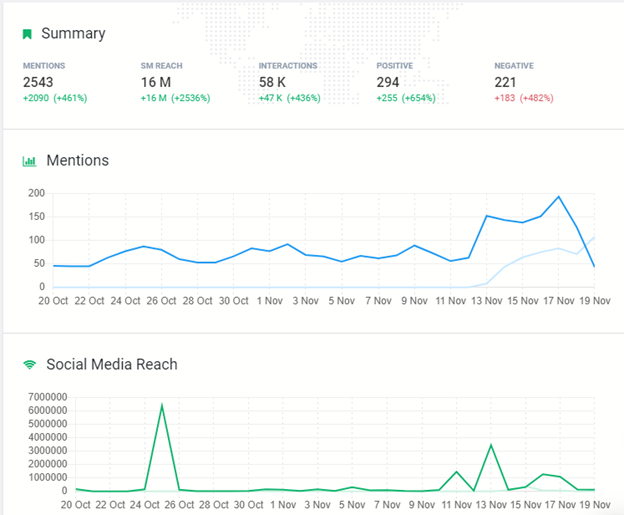Harnessing social listening to gauge public awareness of kidney transplantation
Oscar Garcia Valencia1, Charat Thongprayoon1, Napat Leeaphorn2, Iasmina Craici1, Wisit Cheungpasitporn1.
1Mayo Clinic, Rochester, MN, United States; 2Mayo Clinic, Jacksonville, MN, United States
Introduction: Understanding the digital discourse surrounding kidney transplantation is critical for assessing public interest, awareness, and sentiment. Social listening tools provide invaluable insights into these conversations, offering data that can inform medical professionals, policymakers, and public health initiatives.
Method: We utilized Brand24, a social media monitoring tool, to collect data over a month (Oct 20, 2023-Nov 19, 2023) using keywords related to kidney transplantation. The analysis included metrics such as the volume of mentions, sentiment analysis, reach on social and non-social platforms, user-generated content, and engagement metrics like likes and interactions. Trending hashtags were also tracked to evaluate topic-specific engagement.
Results: Our data revealed 2,543 mentions, marking a staggering 461% increase from the previous period, indicating a notable surge in discussions. Social media reach expanded significantly to 16 million (+2,536%), with non-social media reach reaching 15 million (+302%). Positive sentiment mentions accounted for 57% of the discourse, contrasting with negative sentiment at 43%. High levels of user engagement were evident, with 57,869 interactions and 50,188 likes recorded. The hashtag #kidneytransplant emerged as the predominant trend, underscoring the focal point of the conversation. Notably, the Twitter profile NephJC emerged as a major influencer, actively shaping discourse with its substantial follower base. Influential platforms like YouTube, Twitter, and Facebook dominated, while professional sites such as PubMed also featured prominently.
Conclusion: The conversation surrounding kidney transplantation on digital platforms is dynamic and expanding, with social media serving as crucial arenas for public engagement and sentiment expression. Our findings indicate the successful integration of the topic into public discourse, reflecting increased awareness and active participation. These insights are invaluable for shaping future public health messaging and educational initiatives, ensuring they resonate with audiences where they are most engaged and receptive.
[1] Social network
[2] Public awareness
[3] Kidney transplantation
[4] Digital conversation
[5] Sentiment analysis
[6] Public health
